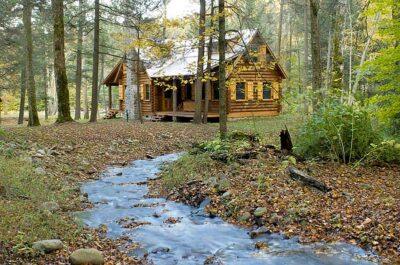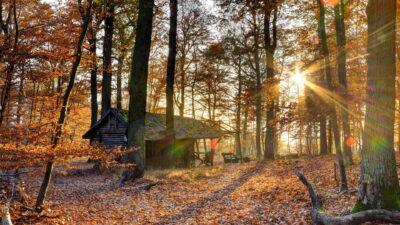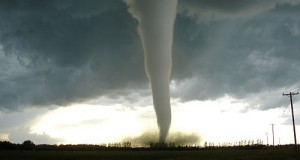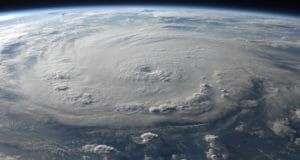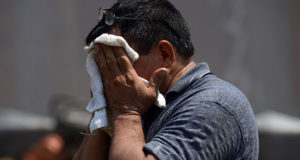Many of us living off the grid have a homestead where we strive for some level of self-reliance. This can be accomplished by using an alternative energy source, having a thriving garden or raising livestock for meat. Regardless of exactly how we strive for self-reliance, often our homestead is remote and private.
However, living on a remote homestead comes with some hidden dangers that could kill you if you’re not aware of and prepared for them. Some common hidden dangers come from the state of the land, existing structures or typical homesteading activities like storing food. Here are some to keep in mind.
1. Toxic Waste
For generations, the United States military and industrial plants have annually pumped up to 4 billion pounds of pollutants into the environment. Although this has resulted in more 400,000 known hazardous waste sites in the U.S., hundreds or thousands of others exist that have never been reported.
Toxic waste is not limited to urban areas. In rural Idaho, for example, more than 5,000 tons of radioactive materials, degreasers, solvents, paints and fuel were legally generated last year. While it’s not known how much toxic waste was illegally disposed of, it’s likely a significant amount. Some of these pollutants are odorless and colorless, and leave no visible trace when illegally dumped.
Toxic waste, both legally and illegally disposed of, can seep into the nation’s groundwater. While both federal and state environmental protection agencies test groundwater and track plumes of pollutants in the water, the unreported waste sites and illegal waste dumps can potentially create polluted groundwater in areas not monitored.
New Survival Energy Product Makes Every Window A Powerful Solar Charger
Many rural properties get their potable water from wells. Even if the well water has been tested in the past, it should be tested annually. The test should include not just common drinking water concerns like pH, coliform bacteria, total dissolved solids and metals, but also pesticides and industrial contaminants. (Read: 6 Toxins Hiding In Your Water.)
2. Mold
Many rural properties have older houses or other structures. While many homesteaders, including me, enjoy the solid permanence of well-built older homes, mold is a concern.
Mold is a fungus that grows in damp areas. While many molds are harmless to humans, some mold spores are toxic.
When looking to purchase a property with existing structures, make sure to get an advanced mold inspection. The typical mold inspection is limited to areas visible to the inspector, or areas otherwise easily accessible. Pay more for a more thorough inspection that covers all areas of the structure.
An inspection for mold, and any necessary abatement, can prevent this hidden danger from killing you.
3. Improper Food Storage
The cornerstone of food self-sufficiency is storing the summer harvest for consumption during the winter. One commonly stored vegetable is the potato. These vegetables contain solanine, a chemical that when consumed in excess can cause cramps, headaches and diarrhea. Larger doses can lead to death.
Commercially available potatoes have been bred over time to minimize the amount of solanine and are safe to eat. However, many homesteaders grow older heirloom varieties that can have higher levels of solanine.
Discover The World’s Healthiest Storable Survival Food!
Regardless of the initial level of solanine in a potato, the level rises the longer the potatoes have been stored. If you have potatoes that have been stored for a while and begin to turn green, avoid these, as the green indicates increased levels of solanine.
You can still grow heirloom potatoes — just make sure to store them in a dark location and discard any that start to turn green. Otherwise, elevated levels of solanine can be toxic.
4. Skin cancer
One of the deadliest “hidden” dangers to hardworking homesteaders is in plain sight — sunshine.
Thousands of people die in the U.S. every year from preventable skin cancer caused by the sun’s ultraviolet radiation. Off-the-gridders are particularly at risk, because we spend a lot of time working outside. Basic precautions include a broad-brimmed hat, long-sleeve shirts and pants and sunscreen. Otherwise, skin cancer can creep up on you and kill you.
What would you add to this list? Share your suggestions in the section below:
Discover The Trick To Saving Thousands At The Grocery Store. Read More Here.
 Off The Grid News Better Ideas For Off The Grid Living
Off The Grid News Better Ideas For Off The Grid Living

